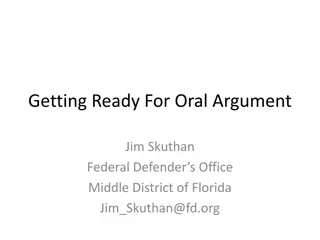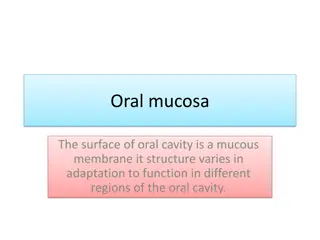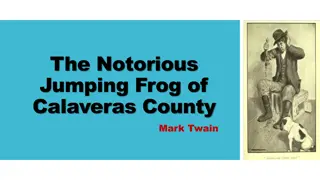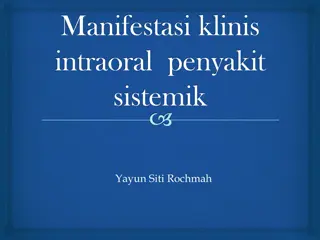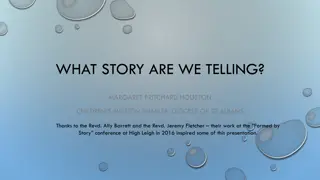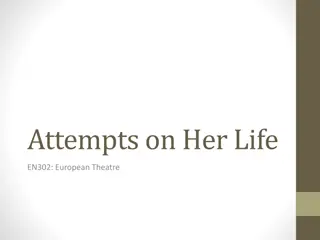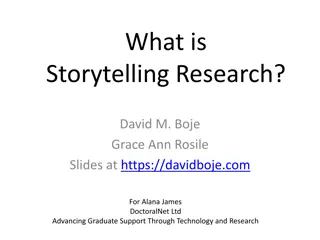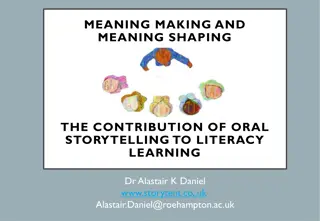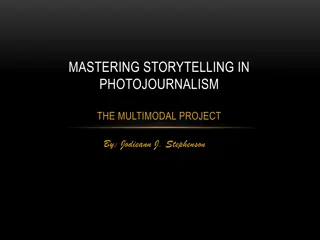Evolution of Oral and Written Storytelling Traditions in European Culture
European storytelling traditions have evolved from oral recitations by bards to written compilations like Homer's epics, highlighting cultural beliefs and historical events. The influence of Celtic languages, Roman conquest, and Viking invasions shaped the development of English literature, reflecting themes of heroism, loyalty, and courage over centuries.
Download Presentation

Please find below an Image/Link to download the presentation.
The content on the website is provided AS IS for your information and personal use only. It may not be sold, licensed, or shared on other websites without obtaining consent from the author.If you encounter any issues during the download, it is possible that the publisher has removed the file from their server.
You are allowed to download the files provided on this website for personal or commercial use, subject to the condition that they are used lawfully. All files are the property of their respective owners.
The content on the website is provided AS IS for your information and personal use only. It may not be sold, licensed, or shared on other websites without obtaining consent from the author.
E N D
Presentation Transcript
When people compose stories, dramatize situations, express emotions, analyze and advocate ideas A) Verbal (def.) uses words to communicate 1) Initially vocalized- oral tradition (scops, troubadours, and bards) 2) Becomes written scribes (monastic) add religious overtones B) Demonstrates culture s beliefs- what s acceptable or unacceptable
1) Homers The Illiad and The Odyssey A) Homer was blind Greek poet B) The Illiad >10-year war over Helen of Troy>ends with Odysseus conceiving of Trojan Horse C) The Odyssey> 10-year journey home>Penelope waiting in Ithaca D) Cultural implications 1) Hero with hubris 2) Intelligence and courage ** First stories were told for hundreds of years with multiple variations, THEN a compilation of most popular versions was written down
Celtic language first in Britain. Scots, Irish, Welsh descendants of Celtic
Video Video showing spread of European language showing spread of European language
He spoke Latin; He conquered: Romance Languages: French, Spanish, Italian, Portuguese, Romanian When Rome pulls out of Britain, only the monks remain
Vikings from Scandinavia invade England in 793AD They speak Old Norse
1) When finally written down in Old English 2) No author given credit for writing (700-1000) First work of English literature 3) Cultural implications (Anglo-Saxon) A) Tribal lords and structure (mead hall/kenning) B) Loyalty and courage (500-1065 AD) **Technically from Britain where Germanic Old English married French in 1066 to make Middle English (this explains why English has more words than any other language). Almost every one-syllable word we speak is from Anglo-Saxon
Old English An. M.LXVI. On yssum geare man halgode et mynster t Westmynstre on Cyldam sse d g se cyng Eadward for ferde on Twelfts m sse fen hine mann bebyrgede on Twelftan m ssed g innan re niwa halgodre circean on Westmyntre Harold eorl feng to Englalandes cynerice swa swa se cyng hit him geu e eac men hine rto gecuron w s gebletsod to cynge on Twelftan m ssed g a ylcan geare e he cyng w s he for ut mid sciphere togeanes Willelme a hwile com Willelm eorl upp t Hestingan on Sce Michaeles m ssed g Harold com nor an him wi gefeaht ear an e his here com eall r he feoll his tw gen gebro ra Gyr Leofwine and Willelm is land geeode com to Westmynstre Ealdred arceb hine to cynge gehalgode menn guldon him gyld gislas sealdon sy an heora land bohtan. Old English Modern 1066 In this year the monastery at Westminster was hallowed on Childermas day (28 December). And king Eadward died on Twelfth-mass eve (5 January) and he was buried on Twelfth-mass day, in the newly hallowed church at Westminster. And earl Harold succeeded to the Kingdom of England, as the king had granted it to him and men had also chosen him thereto and he was blessed as king on Twelfth-mass day. And in the same year that he was king he went out with a naval force against William ... And the while count William landed at Hastings, on St. Michael's mass-day and Harold came from the north and fought against him before his army had all come and there he fell and his two brothers Gyrth and Leofwine and William subdued this land, and came to Westminster and archbishop Ealdred hallowed him king and men paid him tribute and gave him hostages and afterwards bought their land Modern English English
In 1066, William the Conqueror from Normandy, France invades England. He brings the influence of The French language, French Royalty, Feudalism, and the Romance (a popular French Genre usually surrounding a heroic tale of chivalry and courtly affairs)
The Bayeux Tapestry is an embroidered cloth nearly 70 meters long and 50 centimeters tall, which depicts the events leading up to the Norman conquest of England concerning William, Duke of Normandy
English: ox, sheep, swine, calf French: beef, mutton, pork, veal The rich and upper class spoke French Latin, but the lower class spoke Anglo-Saxon German.
Decided dialect to be used as national language Frame story. Prologue: meeting @ Tabbard Inn, all taking pilgrimage (religious journey) to Canterbury, arranging story competition, and describing people from diff. walks of life Then individual stories from traveling pilgrims Then back to the Tabbard
A) One of the most influential people of last 1,000 years #1 out of top 100. 1) Books and education now available to all 2) Ideas were spread globally and spawned new ideas 3) Didn t invent but rather repurposed existing ideas 4) Without this device we wouldn t have the literature we have today
Renaissance-rebirth of Greek and Roman ideals also called Elizabethan Age because of Queen Elizabeth s long reign accused addiction advertising amazement arouse assassination backing bandit bedroom beached besmirch birthplace blanket bloodstained barefaced blushing bet bump buzzer caked cater champion Coldblooded compromise courtship countless critic dauntless dawn Shakespeare invented:
In 1604, King James I of England authorized that a new translation of the Bible into English be started. It was finished in 1611. The Authorized Version, or King James Version, quickly became the standard for English- speaking Protestants. Its flowing language and prose rhythm has had a profound influence on the literature of the past 400 years **The translation was done** by 47 scholars, all of whom were members of the Church of England
Good, gode, guod, guode, goode, goed, gowd, godd, guid guide, gud, gwde, guyd, gewd 7 years in the making. This dictionary helped standardize spelling.
Literature is divided into 4 main types 1) Prose fiction/narrative fiction 2) Poetry 3) Drama 4) Prose nonfiction
Many ways individual can grow by reading 1) Personal growth 2) Intellectual growth 3) Global interconnectivity growth 4) Reveals man s dreams and struggles 5) Provides comparative basis 6) Works as catharsis or escape 7) Expands vocabulary and writing conventions



